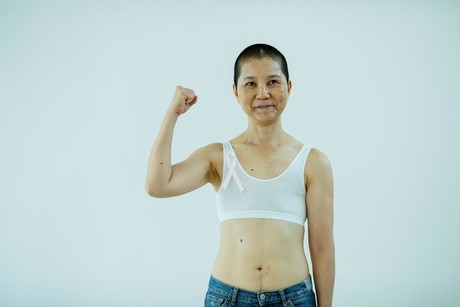Breast cancer can occur in several malignancies within the same breast, so the entire breast is removed; with treatment it could be preserved
Many women with two or three breast cancers may have a glimmer of hope with a lumpectomy instead of removing the entire breast, suggests a new study.
More patients with multiple tumors have been identified in recent years, as a result of more sensitive imaging techniques that can reveal small tumors that were once hidden. This means that more patients are diagnosed with multiple cancerous nodules in the same breast.
In the past, doctors said these women needed mastectomies. The researchers wanted to know: Was this dogma still true?
They followed nearly 200 women with two or three tumors in one breast who underwent lumpectomy followed by radiation. The patients ranged in age from 40 to 87 years. To participate in the study, their tumors had to be smaller than 5 centimeters and separated by 2 to 3 centimeters of normal breast tissue.
After five years, only 3% saw their cancer return, rates similar to previous studies of lumpectomy in patients with a single tumor. The study, supported by the National Institutes of Health, was discussed Friday at the San Antonio Breast Cancer Symposium.
“This study came to my attention very quickly,” said Dr. John Kiluk, a surgeon at Moffitt Cancer Center in Tampa, Florida who was not involved in the research. “It’s definitely a step forward for our industry.”
The benefits of lumpectomy include faster recovery and often better cosmetic results.
There were no surgical guidelines for these patients, but some doctors were already offering lumpectomy as an option, said Mayo Clinic Dr. Judy Boughey, who led the research.
“This approach will make them feel more comfortable,” Boughey said. “And I think it will also make patients ask their surgeon, ‘Okay, I have cancer in two parts of my breast. Do I have to have a mastectomy? Or can I keep my breast?’”
The study did not randomly assign patients to lumpectomy or mastectomy. That would have produced better data, but it would be nearly impossible to find women willing to be randomized, Boughey said, making such an experiment impractical.
In the study, women who had an MRI before surgery had the best results, suggesting that MRI scans may help surgeons be more thorough in removing cancer.
The study is part of a larger research movement aimed at avoiding overtreatment and unnecessary side effects by providing cancer treatments “at the right size,” Boughey said.
With information from AP.


